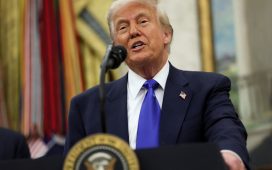Germany’s self-inflicted economic problems have been much in the news in the last couple of years. Having eschewed cheap fossil fuels for ‘green’ energy sources, the manufacturing powerhouse of Europe has fallen into recession, seen a slowdown in growth, a decline in exports, and a widening trade deficit.
Of course, the country’s move away from fossil fuels is not the only reason for its economic problems. Other factors include a global economic slowdown affecting its exports, the Ukraine war cutting off supplies of cheap gas, trade tensions, and domestic challenges such as a decline in investment and a shortage of skilled workers.
None of the reasons for its economic woes have short-term fixes. In fact, it’s possible that these issues will worsen in the short-term. It doesn’t help, either, that Germany’s economy is also affected by the ongoing crisis in the Eurozone. The country’s large trade surplus and its role as the largest economy in the Eurozone make it vulnerable to shocks in the region…and there are a few of those going on right now.
As the largest economy in the Eurozone, Germany plays a major role in the stability of the EU. Essentially it’s the “bank of last resort” for the EU, and German voters are increasingly voicing their irritation at seeing their tax money being used to bail-out lesser economies in the region.
It is no surprise that the AfD (Alternative for Germany) party has gained considerable support among German voters recently, in part thanks to its Eurosceptic views. In recent elections, the AfD has gained double-digit percentages of the vote in several states, including Baden-Württemberg, Rhineland-Palatinate, and Saxony-Anhalt.
Now, argues John Butler, a former managing director at Deutschebank, it is possible that Germany’s economic problems could force its government to pull the plug on some of its funding of the EU.
In a recent interview I did with Butler for my Tin Hat Money podcast, he said, “the European Union has ended up in an existential crisis where it has got to the point now where the very existence of the European Union, in its current core, is being brought into question by a series of unfortunate events.”
Butler, who now edits an investment newsletter for Southbank Investments, says that there is a growing populist movement across Europe, and in Germany particularly, which sees the EU bureaucracy as undemocratic and not acting in the best interests of the European population.
He adds “if you actually look at some things that have happened recently, in Europe, and Germans start to see these weird historical parallels with some of the bad side of what happened in the 20th century…when Europe itself is making policy choices that are starting to look undemocratic, that are starting to look very heavy-handed…Germans get really conflicted and confused. That’s where we currently are.”
So it’s not surprising that German voters are particularly concerned at seeing a lot of their money going to prop up policies that they are not necessarily comfortable with. Butler adds “When the German Finance Ministry comes out and warns the government that the current trajectory of public finances, according to what is seen as a so-called ‘worst case scenario’ but is nevertheless officially published, they’re basically saying that German is going to end up in a debt trap and some day it won’t be able to service that debt, including all the contingent liabilities – that Germany effectively underwrites the EU’s debt – that’s a big deal.
“I think Germany is really having a look in the mirror now. If Germany cannot keep its economic house in order, the EU is finished.”
To watch the whole podcast, watch it here.
For more investing information sign up to my free, fortnightly newsletter here.










